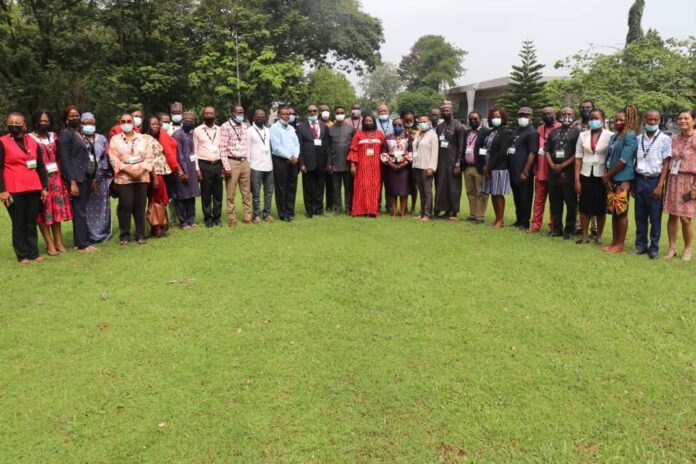30 Nigerian scientists trained on communicating Agric gene editing
By Abdullahi T sanni,
TECHDIGEST – More than 30 Nigerian scientists have received training in the skills needed to effectively communicate with policy makers and the public about the benefits of using genome editing tools in agriculture.
This was at a four-day intensive training workshop themed: “Gene Editing in Agriculture: Science, Policy, and Story”.
The workshop, an initiative of ‘Alliance for Science’, was jointly organized by the International Institute of Tropical Agriculture (IITA), National Biotechnology Development Agency (NABDA) and Open Forum in Agricultural Biotechnology on Africa (OFAB), Nigeria chapter.
The aim of the training was to provide scientists with requisite communication skills needed to discuss the applications of genome editing in food and nutrition security.
Katherine Lopez, Head of Communications at the IITA Headquarters in Ibadan, said the training will help scientists build their skills in developing simplified messages to communicate the purpose of their research and benefits of gene editing to the public.
“It is a strategic training to ensure that scientists are able to communicate this exciting innovation. Currently, few scientists are actively communicating scientific issues, including the use of gene editing in plant breeding, to the public. This results in myths and misconceptions about the scientists’ research, which could hinder scientific innovation. That is why scientists must tell their stories, because they are the real champions of their work,” Lopez said.
Read Also:
One of the participants, Adeboye Seyi Ebun, a scientist and staff of NABDA, confessed to have heard several myths and misconceptions about genetic engineering in Nigeria, saying there is need for scientists to engage the public so as to change their perceptions.
“People are worried because they don’t have the right information about this technology. So, we need to enlighten the public. As scientists, our work does not end in the lab,” Ebun said.
Ebun, who hopes to advocate the benefits of gene editing for tackling agricultural issues in the country, said: “I see myself going back to advocate and promote science-based facts about the technology.”
As for Dr. Ihuoma Okwuonu, a plant biotechnologist and Chief Research Officer at the National Root Crops Research Institute (NRCRI), in Umudike, Abia State, Nigeria’s farms are heavily dependent on rain-fed irrigation and face many challenges such as low productivity, post-harvest losses, stubborn pests and diseases.
“Genome editing has the potential to revolutionize agriculture in Nigeria. It can address issues of food allergies and can be used to breed crops’ resistant to diseases and also improve animal welfare,” Dr. Okwuonu said.
According to her, gene editing holds great promise for Nigerian farmers.
Addressing participants at the event, Dr. Rose Gidado, Country Director of OFAB Nigeria, said the need to train scientists on communicating agricultural research cannot be overemphasized. “Science evolves. Hence, the idea for training scientists to communicate new technologies such as gene editing,” Gidado said.
Dr. Rufus Ebegba, the Director General of National Biosafety Management Agency (NBMA), urged scientists to follow the laws and guidelines already put in place by their Agency to ensure safe application of the technology in Nigeria.




















